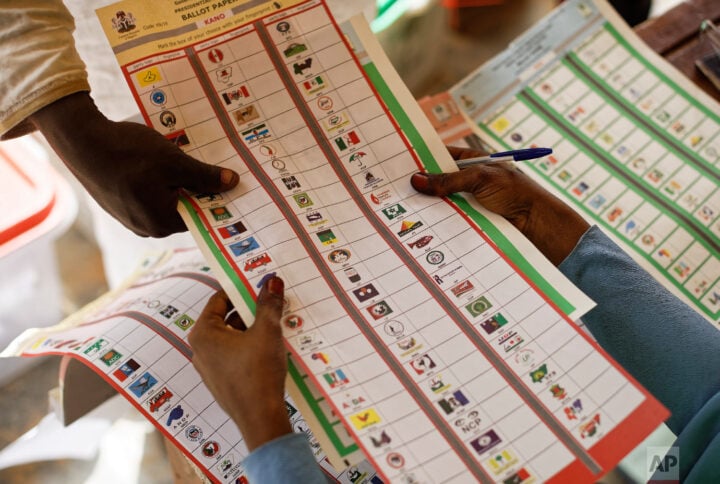Davido: Wizkid and I are greatest of all time
There is an assumption that the creative and media/entertainment industries are the same thing, but they are not. The creative industry is a range of economic activities which are concerned with the generation or exploitation of knowledge and information. The creative industry encompasses businesses with creativity at their heart: design, music, publishing, architecture, film and video, and so on.
The media and entertainment industry, on the other hand, has to do with the sharing of information, communication, and entertainment. Media and entertainment comprise segments such as film, television, radio, and print.
The media & entertainment industry offers many investment opportunities, but the landscape is also lined with pitfalls.
I’m reminded of a friend who invested N15 million in his brother’s music career. Several months passed until he learned the hard truth. His brother had spent N3 million (about $7000) to shoot a music video, he used another chunk to refurbish his car and spent the rest hanging out in nightclubs. Alas, the investment was gone! All he had to show was a few songs and a music video. There was no business plan, no objectives except to “blow”.
Advertisement
So how does one know whether to invest or run?
My friend and many others like him might not know any better, but the single artist record label business that he had started is risky. Serious record labels take a portfolio approach to mitigate risk and avoid making a huge loss on artists.
Still, the Nigerian media & entertainment industry has myriad opportunities for investments, what is lacking is knowledge. Equipped with the right knowledge, one can navigate the terrains of these industries and reap good profits.
Advertisement
The global media and entertainment industry derives about $2.1 trillion annually. The American industry alone is reported to be worth over $720 billion.
Alphabet, the owner of Google, dominates the media and entertainment market with a revenue worth over $59.62 billion. Some other big players in the global media and entertainment industry are The Walt Disney Company ($22.45 billion revenue), Comcast, whose media revenue came from its NBC Universal cable networks and broadcast TV divisions($19.72 billion revenue), and 21st Century Fox ($18.67 billion revenue).
Motion picture and music recording accounted for about N730 billion (roughly $1.8 billion) of Nigeria’s GDP in 2020. Zeroing in on the music industry, the top record labels in Nigeria, DMW (Davido Music Worldwide), Mavin Records, and Starboy Entertainment, are worth $50 million, $45 million, and $43 million respectively. Given my considerable experience and knowledge of the space, I can only say I have very strong reservations about these valuations.
These numbers are encouraging, especially since we are in the era of digital advancements, with Nigeria having one of the biggest entertainment hubs in the continent. The creative sector is also the fastest growing sector in Nigeria’s economy, which means when done right, investors stand to gain handsome returns.
Advertisement
Obviously, there is still so much untapped potential. But the risk factors are too high for investors to not be wary.
The coming years will see the adaptation or extinction of TV, radio, and newsprint players, an influx of international actors, the acquisition, consolidation, and formalisation of older practitioners plus a plethora of new entrants. Content will continue to be democratised by individual creators which in turn means thousands of micro “businesses” operating haphazardly who will almost certainly come up with innovative models. Those that find ways to harness the raw talents and zeal of young creatives will build sustainable businesses in and around the ecosystem of creation and consumption of music, video, TV and film.
To solve this problem, one needs to bridge the gap between creative entrepreneurs and market realities. Investors have to learn the language and fundamentals of the industry and creatives need to be able to speak in terms that investors can understand.
Another concern is that in the media/entertainment industry specifically, the lines bordering value chains from pre-creation/production to post-creation/production are often blurred. When one person plays multiple roles within this value chain, it translates to a lack of specialisation, which in turn poses more risks.
Advertisement
Unlike the creative & media industries that require upfront capital, investors make their money back from the revenue generated from these bodies of work, and without a clear path to their returns (which usually depends on factors such as sales, collaborations with brands, advertising, streaming, and so on), investors have no choice but to back out.
Both the investment and creative ecosystems suffer from insufficient government support, funding, and regulation/policy friendliness. The wobbly systems and structures are incredibly risky to navigate, and this is why these industries have to focus on cultivating and upholding regulatory practices by creating bodies and keeping to the stipulated policies, and this also means clamping down on pirates and defaulters of copyright laws.
Advertisement
An influx of funds—which the creative and entertainment industries unquestionably need to grow even bigger— will support the expansion of the creative ecosystem and the creation of jobs. And ultimately help these industries attain the expansion and depth needed to compete on the global standard.
BENCHMARKING STATEMENT
Advertisement
According to the PWC Global Entertainment and Media outlook 2020-2024, media and entertainment generated $4.6 billion in 2019. This includes 11 industry sub-segments including film and music. Approximately 70% of that revenue comes from internet access, TV advertising, and subscriptions.
To set a baseline and ease of treating FX rates, we will use the exchange rate of N500 to the dollar which is a mid-cycle increase of the rate used in the PWC report.
Advertisement
Sam Onyemelukwe is a Nigerian media and entertainment and music industry expert and is currently the managing director, West Africa, and VP, Global Business Development, Trace TV.
Views expressed by contributors are strictly personal and not of TheCable.
Add a comment







